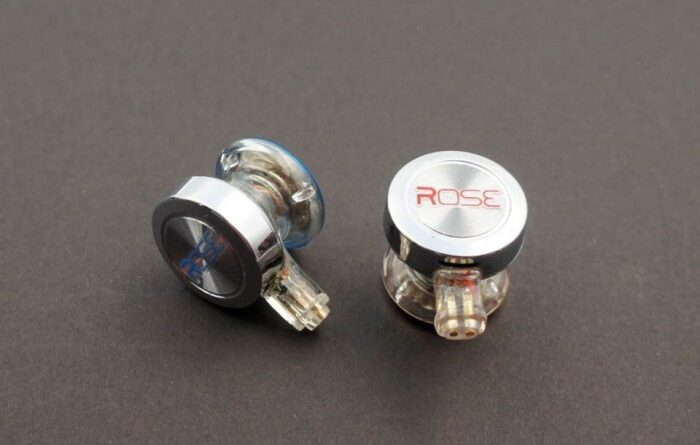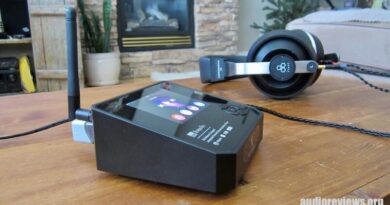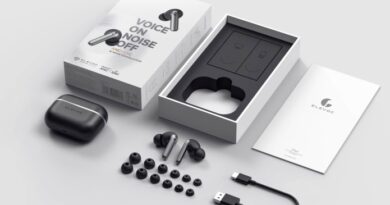Rose Mojito – Honorable Progenitor
The first model to appear in Rose Technics’ earbuds family back in 2016, Rose Mojito stay as an absolute gem in their category.
Subsequently followed by other models named Masya and Maria, all of these including the original Mojito are now discountinued to leave the field to the latest iteration called Maria II, which is the sole Rose Technics earbud model currently available.
I’ve had a chance to extensively audition both Mojito (originally priced at $259,00) and Masya, both being privately owned samples, and this article is about my experience with the former, with some comparison notes to add hints about the latter at the end.
In this Article
At-a-glance Card
| PROs | CONs |
| Spectacular neutral tonality and organic timbre. | Demanding in terms of source pairing. |
| Good sub bass and punchy, clean, textured bass. | Build could use some more refinement. |
| Extremely good highmids and trebles. | |
| Great comfort (ymmv) |
Full Device Card
Test setup
Sources: Apogee Groove + Burson FUN + IEMatch / Questyle QP1R – stock full foams – Stock cable – lossless 16-24/44.1-192 FLAC tracks.
Signature analysis
| Tonality | Rose Mojito have a virtually purely neutral presentation, with no section taking lead over the others. Timbre is organic, acoustic and well bodied. |
| Sub-Bass | Sub bass is quite extended and strong – very surprisingly so considering we’re talking about a pair of earbuds, and physically big ones too so no real “seal” happens on the outer ear really. Still, the rumble I get from Mojito is somehow better than that I get from some IEMs at times. |
| Mid Bass | Mojito’s midbass is fast, punchy, bodied, authoritative but perfectly controlled and well textured. Really well done. |
| Mids | Rose Mojito’s mids are superbly organic, natural, realistic. Listening to acoustic music on Mojito is a pure pleasure. Their relative position is neither recessed nor forward, note body is well calibrated. Highmids are free from any form of sibilance. |
| Male Vocals | Male vocals are very natural, organic, well bodied although not particularly deep or cavernous. Totally authonomous from midbass which never veils on them |
| Female Vocals | Female vocals are also very good although I find males a further tad better. Females are good, natural/organic and well bodied, but just a small step south of flutey. No sibilance, nor shoutyness of sorts. |
| Highs | Rose Mojito’s treble is very well extended, vivid, crisp and bodied. No shrills not metallic aftertastes can be heard – on the contrary Presence trebles especially are beautifully balanced between microdynamics and smoothness. |
Technicalities
| Soundstage | Mojito’s stage size is nothing short of huge in all directions, with maybe a bit less extension in the depth sense – the experience is very similar to that of an openback overear. |
| Imaging | Instrument positioning is perfectly distributed all over the stage |
| Details | Rose Mojito’s detail retrieval is nothing short of outstanding both from the very well executed highmids and trebles and from the midbass |
| Instrument separation | Layering and separation is – amonsgt the other good parts of this product – an absolute point of excellence for Mojito: there’s no crowded passage I could find where I couldn’t properly tell one voice or one note from another, and this even retaining an amazing amount of nuances (microdynamics) |
| Driveability | Oddly enough, Rose Technics publishes the electrical data of each of the two internal drivers instead of the system’s comprehensive ones (see below). That said, properly driving Mojito is no joke due to the very low impedance and sensitivity involved. IEMatch adoption (“Ultra” setting) is imperative when paired with pretty much any regular desktop amp. Pairing with QP1R is OK. Pairing with low power / low end daps will result in FR distortion and/or lack of enough current supply. |
Physicals
| Build | The general impression is reasonably solid, although not much more than that. A further tad of engeneering attention may be used on the plastic cable connectors holders. |
| Fit | A series of options are worth trying here. Putting rubber rings under the foams will improve size and “seal” in a sense, and this will result on more elevated bass lines. Selecting donut foams instead of full foams will enhance trebles and especially air on them. Lastly, I found those plastic comma-shaped hooks very convenient to help with Mojito stability, considering their sizeable dimensions. |
| Comfort | Rose Mojito’s domes are big, so unless you got an uncommonly big concha you can forget to have them fit in there. On the other hand, though, their shape is such that you can (or should!) “simply” “rest them onto” the outer ear, cable-down, and on that position they are more than reasonably comfortable! |
| Isolation | These are earbuds so isolation is almost nil, although their big size does provide at least “some” passive shielding |
| Cable | The standard modular cable is definitely good, and for once in line with the overall cost of the package |
Specifications (declared)
| Housing | 3D printed shells |
| Driver(s) | 15.4mm dynamic driver + 10mm dynamic driver |
| Connector | 2pin 0.75mm |
| Cable | 8 core 5N oxygen-free copper + silver plated cable with 3.5mm single ended termination |
| Sensitivity | 98dB (10mm driver), 108dB (15.4mm driver) |
| Impedance | 12Ω (10mm driver), 18Ω (15.4mm driver) |
| Frequency Range | 8-28000Hz |
| Package & accessories | N/A (assessed a pre-opened packaged) |
| MSRP at this post time | $259 (discontinued) |
Comparisons
vs Rose Masya ($ 129,00 – discontinued)
Masya is the model released by Rose Technics just after Mojito, and can be considered its economical (50% lower priced) version in a sense.
Unlike Mojito, Masya offers a bright-accented presentation to begin with, with a tint of warmth added to the lowmids to counterbalance a bit. Sub bass is almost entirely absent, while it’s very present and generating nice rumble on Mojito. Midbass are similar on Masya and Mojito, with Masya showing a somewhat less note body there.
Mids are more forward on Masya, I would say equivalently detailed and organic as on Mojito, and still free from any sibilance of sort, but Masya’s high mids do have a tendence to get shouty, and trebles are sometimes even slightly splashy on Masya, which does not happen at all on Mojito. Technicalities are also similar: Masya presents just a bit less of stage depth, and its instrument separation capabilities, especially on trebles, are limited on the upside when the driver goes shouty.
vs K’s Earphone BELL-LBS (€ 59,00 street price)
Bell-LBs are the sole example of almost purely neutral tuned earbuds which come at least somewhat close to Mojito’s refinement that I could find (at a fraction of Mojito’s asking price).
Sub-bass rumble is indeed present on Bell-LBs, but at an evidently lesser elevation compared to Mojito. Midbass on Bell-LBs and shares the same speed and punchyness with Mojito, but notes are a bit leaner and less textured (on Bell-LBs). Mids and vocals behave very similarly – ob both drivers females are better than males, which sound leaner and somewhat hollower. Female vocals and highmids some rare time get somewhat close to sibilance on Bell-LBs, which never happens on Mojito.
Trebles are well refined on Bell-LBs, there’s no shoutyness that I can assess much like it happens on Mojito. Treble balance in the general presentation economy is more prominent on Bell-LBs, which sound airier nonetheless. Technicalities are very similar, with the sole notable difference being that Bell-LBs cast a less deep stage.
Considerations & conclusions
Rose Mojito are no doubt, and by far, the most refined sounding earbuds I have ever auditioned. So much so that it’s not even appropriate to “compare” them with the overwhelming majority of the “most popular” earbuds, with which the sole real common part is frankly just the form factor category itself.
Oddly enough, if I had to define and introduce Rose Mojito to someone never having heard them I would say: consider them as a pair of openback headphones… in miniature size. Mojito deliver a spectacularly extended holographic sound field, high-end resolving power and superb instrument separation on a virtually pure-neutral presentation, and a 100% organic acoustic timbre. Listening to acoustic music on Mojito is nothing short of pure pleasure.
I wish I had the opportunity to audition their currently marketed evolution: Rose Maria II. You never know what may happen…







